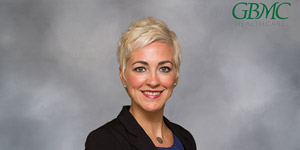SAFE Program helps victims of domestic violence during pandemic
February 10, 2021
The arrival of COVID-19 in early 2020 led to stay-at-home orders for much of the United States. While these measures were intended to help keep the public safe and prevent widespread infection, the school closures, changes in employment status, and subsequent increase in time spent at home has also led to a rise in domestic violence cases. "Parents are being laid off and are now stuck at home with their spouse and kids, there are a lot of increased stressors, which is going to increase tension," says Laura Clary, BSN, RN, FNE-A/P, SANE-A, Clinical Program Manager, SAFE Program. "At the beginning of the lockdowns we saw a tremendous decrease in the number of patients, which was alarming, because we know these crimes don't stop during a pandemic." She explains, "It's because people couldn't get to us. They were stuck at home with their abusers or didn't want to come to the hospital because of fear of the virus."
The realization that patients were avoiding reaching out for help led to an overhaul in how the SAFE (Sexual Assault Forensic Examination) & DV (Domestic Violence) program at GBMC handles patients. Clary says before the pandemic, patients would be triaged and evaluated in the hospital Emergency Room before seeing a SAFE nurse. Now, she explains "Patients needing our services bypass the Emergency Department completely when appropriate. We've coordinated with law enforcement to bring them to our suite directly and we've started using telehealth for them to meet with an ER physician."
Treatment and care are just one aspect of the SAFE program that needed to be adjusted because of COVID-19. Community outreach plays a big role in spreading the word about the program's services, along with education and prevention. Clary says face-to-face meetings and trainings are on hold for how, but the outreach program is completely back up and running on a different platform. "It's all virtual now," she adds, "But we're back to holding trainings for schools and agencies and sharing as much information as we can."
Clary says talking about domestic violence is the first step in combatting the rising number of cases. "We need to make it known that it's happening more now, behind closed doors." She emphasizes. "Because of the added stress and tension of the pandemic there's also been an increase in the severity of domestic violence—we're seeing people with more urgent needs and injuries than before." Clary adds if you think someone is dealing with abuse at home, the best thing you can do is to let them know that you're there for them and you support them. "Tell them you believe them, they're not alone, and no one deserves to be treated this way," she explains. If a child is involved in the possible abuse, her advice is straightforward; "It's always better to report it than to not."
Most importantly, Clary wants to share the message that the services the SAFE team provides are 100% free and confidential. "No insurance will be billed for forensic nursing and advocacy services, and no one is contacted without patient permission," She reiterates, "Anyone who comes in seeking treatment will have complete control over their body and healthcare."


